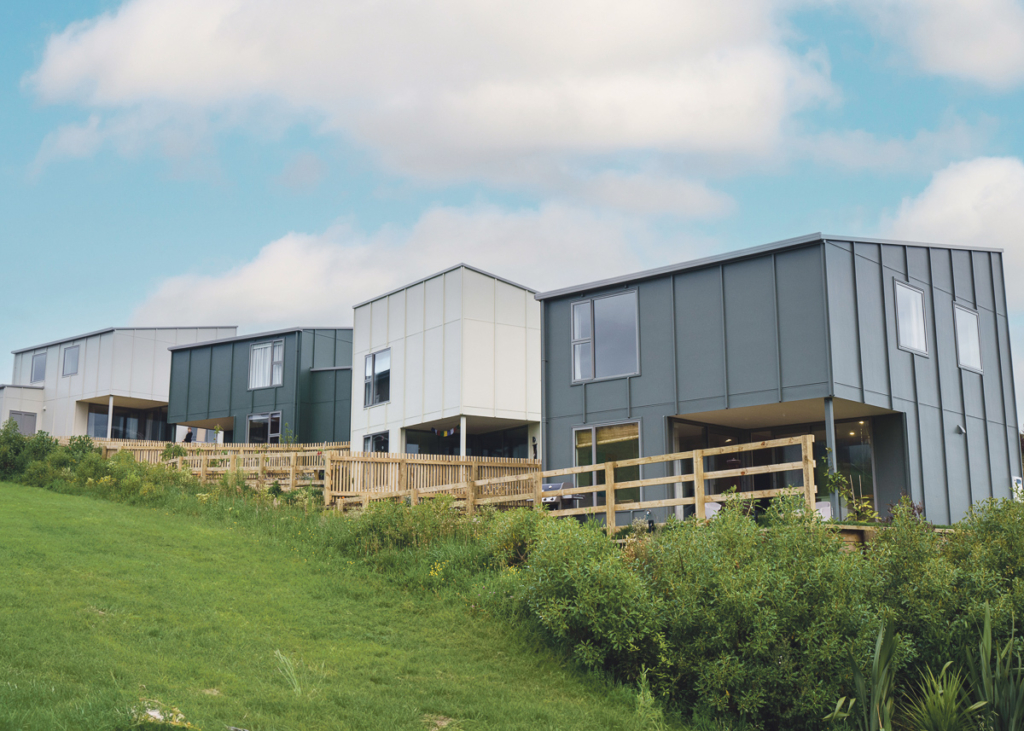On Saturday 14th October, New Zealand voted to change from a red to a blue Government to be supported by minor parties TBA.
The election result comes at a time when the property market across the country appears to be slowly moving off the bottom, with the average house value in NZ increasing by 0.9% in the last 3 months – the first noticeable upwards movement in two years. Election aside, there’s already multiple things conspiring to put upwards pressure on property values:
Population growth is at a record 2.1% for the year, that’s an extra 105,900 people living in NZ compared to last year. The areas that have seen the most growth are Auckland, Waikato, Bay of Plenty and Otago (mainly Queenstown)
This population growth is happening at a time where new house building has fallen away sharply (although not here in Raglan with Rangitahi storming ahead)
The Official Cash Rate (OCR) is thought to have peaked, meaning many potential borrowers are less worried about rising interest rates and starting to think of future falling rates
Buying an existing home is currently significantly cheaper than building an equivalent new home. At present on average in NZ it is around $200,000 cheaper to buy an existing property with a 180m2 dwelling than it is to buy the land and build that 180m2 house. The average ‘new build premium’ since 1995 is $65,000
Many prospective homebuyers have been playing the waiting game, wary of rising interest rates and falling values. There is significant pent up demand
The Credit Contracts and Consumer Finance Act (CCCFA) has recently been loosened meaning the ‘credit crunch’ has eased and mortgage finance is now more available
The Blue Government campaigned on various property related policies. Here’s what we can expect them to change:
Re-introduction of mortgage interest deductibility for property investors. By 2026, landlords will be able to offset 100% of the interest on their investment mortgage/s against the rent income. The loss of this deduction has been a major driver of rent increases over the last 2 years. I’d like to say that this change will take the sting out of rapidly rising rents, but rising maintenance costs, rising council rates and dramatically rising insurance costs will keep pressure on rents. The prospect of eventual re-introduction of interest deductibility has already spurred on property investors and we’re seeing investors purchasing again after a 2 year hiatus
The ‘Brightline test’ for Capital Gains Tax (CGT) is proposed to be changed from its current 10 year timeframe to 2 years from July 2024. We think investors from July 2024 will start to list for sale properties that no longer suit them and purchase better quality properties
Tenant legislation will be changed back to favour landlords more. This will give investors more confidence to purchase rentals
Properties with sale prices over $2m will be open to foreigners to purchase, albeit with a 15% tax to pay. We expect this will place extra demand on higher value properties and also drag up the values of lower value properties over time
Further loosening of the CCCFA is proposed
In summary, we expect the upcoming policy changes to put upwards pressure on property values at a time when there is already significant upwards pressure in the background. Recently 28% of all sales have been to first home buyers which has been great, but we expect first home buyers to experience more competition into next year.











